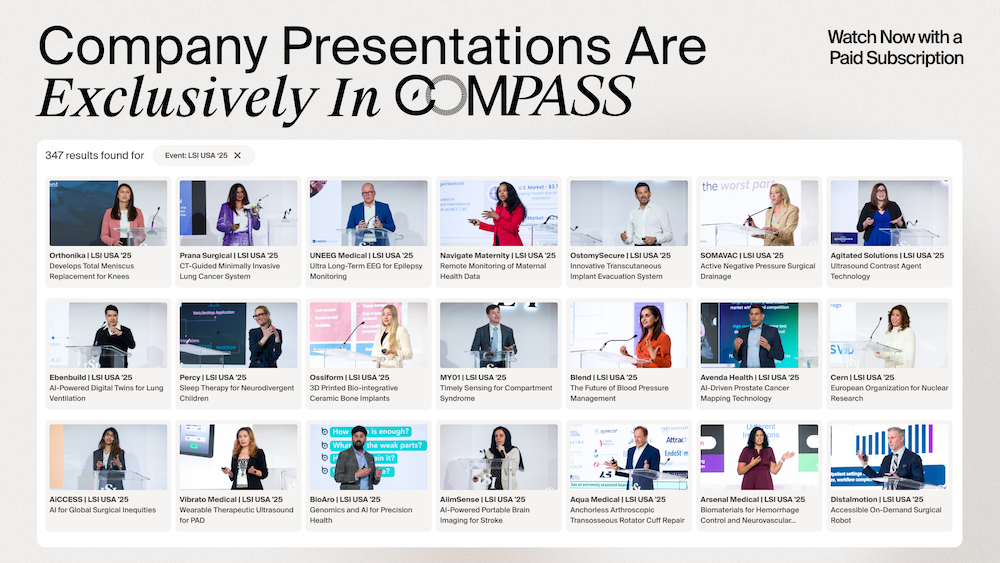- Video Library
- Dan Rizzuto, Nia Therapeutics - Precision Neurostimulation Therapy | LSI USA '24
Dan Rizzuto, Nia Therapeutics - Precision Neurostimulation Therapy | LSI USA '24
shaping the future of
Medtech at LSI USA ‘26
Waldorf Astoria, Monarch Beach

Dan Rizzuto
Nia Therapeutics is building the world's first personalized neurostimulation system for the treatment of memory loss. Nia's technology was developed at the University of Pennsylvania with funding from DARPA as part of the Restoring Active Memory (RAM) project, and our team has published multiple peer-reviewed studies demonstrating our ability to improve human verbal memory. Nia's platform represents the next generation of deep-brain stimulation devices: smart, connected, and powered by AI.
Dan Rizzuto
Nia Therapeutics is building the world's first personalized neurostimulation system for the treatment of memory loss. Nia's technology was developed at the University of Pennsylvania with funding from DARPA as part of the Restoring Active Memory (RAM) project, and our team has published multiple peer-reviewed studies demonstrating our ability to improve human verbal memory. Nia's platform represents the next generation of deep-brain stimulation devices: smart, connected, and powered by AI.

17011 Beach Blvd, Suite 500 Huntington Beach, CA 92647
714-847-3540© 2026 Life Science Intelligence, Inc., All Rights Reserved. | Privacy Policy







